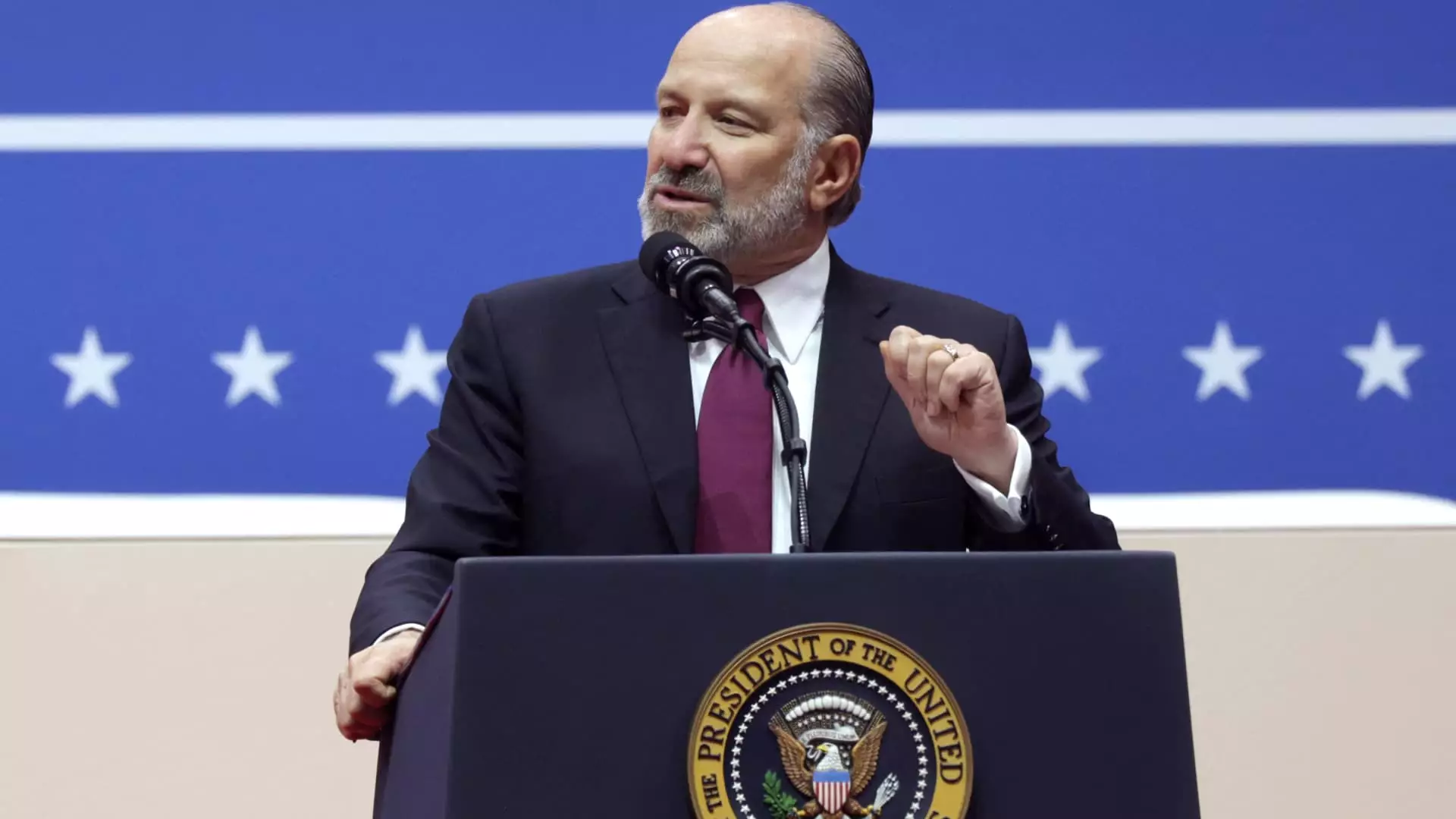The conversation around President Donald Trump’s tariff policies, particularly regarding technology imports from China, has recently taken a turbulent turn, marked by uncertainty and speculation. Howard Lutnick, the Commerce Secretary, has stepped into the limelight with an assertion that has sent shivers through the tech industry—reciprocal tariff exemptions on electronics, while temporarily comforting, may not be sustainable. His declaration that separate tariffs on essential electronics like smartphones and laptops are “coming soon” underscores a precarious atmosphere for American consumers and tech companies alike.
What Lutnick’s comments hint at is more than just an impending recalibration of tariff strategies; they signal an increasing reliance on protectionist policies that could have seismic implications for the American economy. In a moment that seems like one more episode in a soap opera of erratic trade policy, the reality is that this unpredictability significantly undermines business confidence. The notion that prices will inevitably rise thanks to tariffs doesn’t just threaten manufacturers; it threatens everyday consumers who may soon find themselves paying inflated prices for the technology they rely on.
Manufacturing Madness: The Case for National Security
Lutnick’s defense of reinforcing domestic production under the pretext of national security raises critical ethical questions. While it is important to safeguard American interests, the argument that tech products must be manufactured within the U.S. for security reasons feels tenuous at best. In innovation and technology sectors, the symbiosis of international collaboration has often led to growth and advancement that isolated, homegrown production simply cannot match.
Moreover, labeling electronics as critical to national security appears to conflate economic policy with a sort of economic nationalism that fails to acknowledge the complexities of global supply chains. It sets a dangerous precedent, where economic decisions are divorced from market logic and grounded instead in fear-driven narratives. In a modern economy that thrives on interconnectedness, reverting to a fortress mentality could stifle innovation and practicality.
The Fallout: Credibility at Stake
Compounding the uncertainty, Democratic Senator Cory Booker’s critique of the administration’s shifting stance exposes a deeper issue of credibility. When a commander-in-chief suggests a sudden halt on tariffs, only to reverse course hours later, it raises troubling questions about the consistency and reliability of U.S. trade policy. As globalization renders economies more interdependent, trust and stability are crucial commodities, and they appear to be in dangerously short supply under the current administration.
Booker’s assertion of a “crisis in credibility” is not just political posturing; it reflects the broader discontent among global trading partners who are grappling with the erratic nature of U.S. foreign policy. Businesses thrive on stability and predictability; without these, investment decisions become fraught with risk, potentially leading to a slowdown in economic growth.
In sum, these unfolding events serve as a stark reminder that the tango of tariffs is not merely a political maneuver but a high-stakes game that could redefine the contours of American consumerism, tech innovation, and global economic relations. As the tariffs loom and negotiations twist in the wind, both consumers and companies must brace themselves for an uncertain future where what’s at stake is not just the price of electronics, but the broader health of an interconnected economy.

Leave a Reply